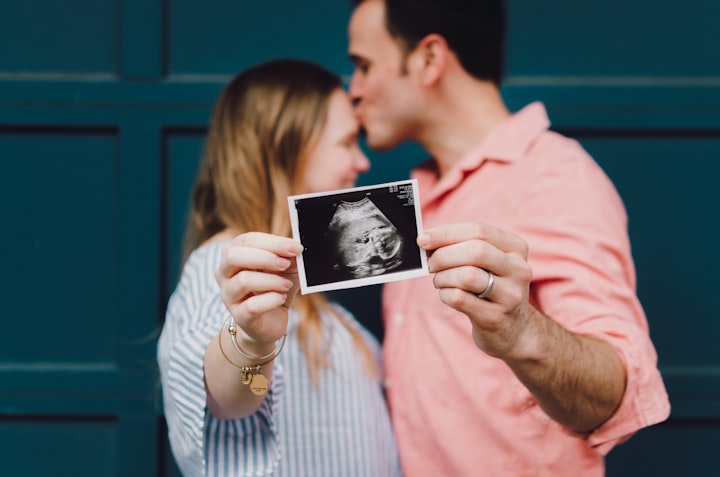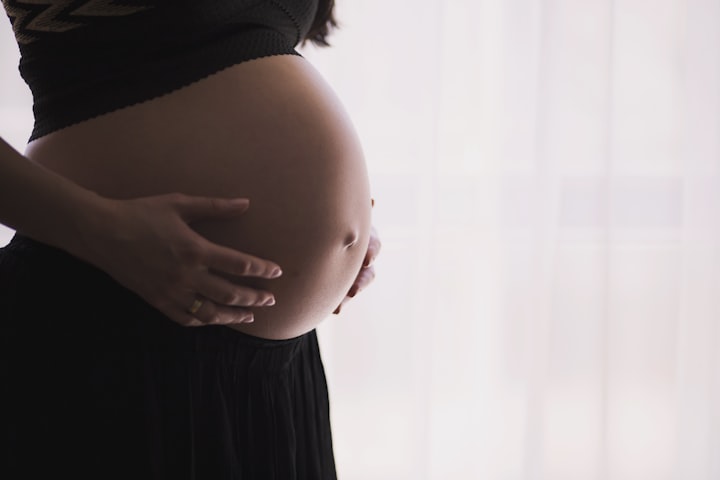Pregnancy Week By Week
A Journey Of Growth And Development

Pregnancy is an extraordinary time in a woman's life, filled with anticipation, joy, and a whirlwind of changes. From the moment of conception to the birth of a beautiful baby, the nine-month journey is a remarkable process that unfolds week by week. In this article, we will delve into the incredible transformation that occurs in a woman's body during each stage of pregnancy.
Week 1-4: The Beginnings
In the first weeks of pregnancy, the groundwork for new life is laid. The fertilized egg, known as a zygote, implants itself in the uterine lining. Rapid cell division occurs, and the zygote develops into an embryo. The placenta, which will nourish and protect the growing baby, begins to form.
Week 5-8: Rapid Development
During this period, the embryo goes through a period of rapid growth. Major organs, such as the heart, brain, and lungs, begin to form. Tiny limb buds appear, and the embryo's face starts to take shape. The mother may experience early signs of pregnancy, such as fatigue, nausea, and tender breasts.
Week 9-12: Vital Systems
By the end of the first trimester, the embryo is now considered a fetus. It is about the size of a plum. The vital organs continue to develop, and the fetus begins to move, although the mother may not feel it yet. External genitalia also start to differentiate, determining the baby's sex.
Week 13-16: Growing and Maturing
As the second trimester begins, the fetus undergoes rapid growth. The baby's bones harden, and the skin becomes covered in a fine, downy hair called lanugo. The mother may experience a surge of energy, and her belly starts to show as the uterus expands.
Week 17-20: Sensory Development
During this stage, the fetus's senses begin to develop. The baby can hear sounds from the outside world, including the mother's voice. Fingernails and toenails form, and the baby starts to swallow and digest amniotic fluid. The mother may feel the first flutters of movement, known as quickening.
Week 21-24: Viability
At around 24 weeks, the fetus reaches the stage of viability, meaning that with specialized medical care, it has a chance of surviving outside the womb. The lungs continue to mature, and the baby's taste buds form. The mother may experience backaches and leg cramps as her body adjusts to the growing baby.
Week 25-28: Growth Spurt
During this period, the fetus experiences a significant growth spurt. Its brain develops rapidly, and the eyes can open and close. The baby's kicks become stronger, and the mother may feel hiccups as the baby practices breathing movements.
Week 29-32: Nesting Instinct
As the third trimester progresses, the baby's movements may feel more vigorous, sometimes causing discomfort for the mother. The baby's bones harden, and the lungs continue to mature. The mother may experience shortness of breath and heartburn as the growing uterus presses against her diaphragm and stomach.
Week 33-36: Final Preparations
During these weeks, the baby continues to gain weight and prepare for birth. The baby's head may start to engage in the pelvis, getting into position for delivery. The mother feel increased pressure on her bladder and may have trouble finding a comfortable sleeping position.
Week 37-40: Full Term
Congratulations, you've reached full term! The baby's organs are fully developed, and the baby is ready for life outside the womb. By this stage, the baby has grown significantly, and the mother's abdomen is usually noticeably larger. The baby's movements may become more restricted due to limited space. Common physical discomforts can include backaches, pelvic pressure, frequent urination, swollen feet and ankles, and difficulty sleeping. Braxton Hicks Contractions which are mild contractions can occur intermittently during the third trimester, which might feel like a tightening or squeezing sensation in the abdomen. Braxton Hicks contractions are usually irregular and don't usually cause significant pain or progress into labor. Many pregnant individuals experience a surge of energy and an urge to prepare for the baby's arrival during this time. This may involve cleaning, organizing, and setting up the baby's nursery. As the due date approaches, expectant parents might attend childbirth education classes, finalize birth plans, and discuss pain management options with their healthcare provider.
It is important to remember that every pregnancy is unique, and each woman may experience different symptoms and sensations throughout the stages. Regular prenatal care, a healthy lifestyle, and open communication with healthcare providers are crucial in ensuring the well-being of both the mother and the baby. The stages of pregnancy are a testament to the beauty and complexity of life itself. It is a time of growth, love, and endless possibilities.
About the Creator
OJO OREOFE
Hi there, My name is Ojo Oreofe. I am a professional writer with over two years of experience creating content for a variety of audiences. I have worked as a freelance writer for multiple publications. In my free time, I enjoy reading.






Comments
There are no comments for this story
Be the first to respond and start the conversation.